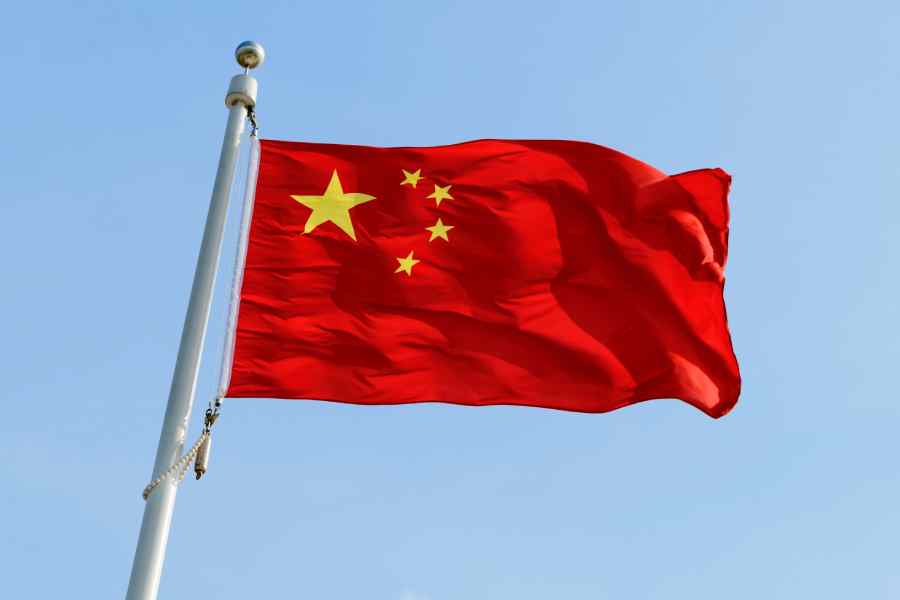Chinese President Xi Jinping on Friday launched an Information Support Force, a new wing of the People's Liberation Army, which he said will be a strategic branch, a key pillar and a vital power in modern warfare for the world's largest military.
Xi, 71, who also heads the Central Military Commission (CMC), the overall high command of the Chinese military, besides heading the ruling Communist Party of China (CPC) and the Presidency, said that the establishment of the Information Support Force (ISF) is a major decision made by the CPC and the CMC in light of the overall need of building a strong military.
The Information Support Force (ISF) was regarded as the revised version of the PLA's Strategic Support Force (SSF), established in 2015 by the Chinese military to deal with space, cyber, political and electronic warfare to fight what was described as "informationised wars".
The leadership and structures of the PLA Space Force and the PLA Cyberspace Force have been rearranged accordingly, the CMC said.
The announcement also marked the first time China has confirmed the existence of the Space Force and the Cyberspace Force, which were widely believed to be major parts of the Strategic Support Force, state-run China Daily reported.
State-run Xinhua, which reported Xi's launching of the ISF, also stated that the CMC has cancelled the designation of the SSF, which observers say has been re-launched as the ISF.
After presenting a flag to the force at its establishment ceremony in Beijing, Xi stressed that the information support force is a new, strategic branch of the military and a key pillar in coordinating the construction and application of the network information system.
It will play a crucial role in advancing the Chinese military's high-quality development and competitiveness in modern warfare, Xinhua quoted him as saying.
"This is of profound and far-reaching significance to the modernization of national defence and the armed forces and to the military's fulfilment of its missions and tasks in the new era," Xi said.
"The Information Support Force is a brand-new strategic branch of the PLA and a key pillar of the integrated development and use of the network information system," he said.
It plays an important role and bears great responsibility in promoting the PLA's high-quality development and the ability to fight and win in modern warfare," he added.
Xi stressed that the unit must focus on its core task of using information assets to support combat operations. It must maintain information flow, integrate information resources, protect the information security, and integrate deeply into the military's joint operation system, he said.
He also asked the new force to boost innovation, strengthen coordination and integration among different systems, cooperate with other forces, and bolster the sharing of assets. He said that it must form a network information system, that can support modern combat operations and has Chinese characteristics.
Senior Colonel Wu Qian, a spokesman for the Defence Ministry, told media later that with the latest overhaul, the PLA now has four services, namely the Ground Force, the Navy, the Air Force and the Rocket Force, and several sub-branches including the Space Force, the Cyberspace Force, the Information Support Force and the Joint Logistic Support Force.
In response to a question about the newly declassified Space Force, Wu said that building the force is of great significance in strengthening the capability to safely travel to outer space, openly and peacefully develop space resources, and enhance governance and crisis management in space.
"China's space policies are clear and plain. We are always committed to the peaceful utilization of space and stand ready to work with all countries with the same commitment to strengthen exchanges, deepen cooperation and contribute to lasting peace and common security in space," he said.
When asked whether the Cyberspace Force is used for "militarizing the internet", Wu said cybersecurity remains a global challenge and poses a severe threat to China.
"Developing the Cyberspace Force and tools for cybersecurity and defence is important for reinforcing national cyberspace defence, promptly detecting and countering network intrusions and maintaining our cybersovereignty and information security," he said.
Xi ordered the force to resolutely obey the ruling Communist Party's command and make sure it stayed absolutely loyal, pure and reliable.
Since he assumed power in 2012, Xi has revamped the military, reducing its size to around two million by retrenching three lakh troops and officers, besides overhauling the command structures of the PLA and creating a missile force called the Rocket Force.
He also introduced the system of constant training of troops with real wartime exercises.
Except for the headline, this story has not been edited by The Telegraph Online staff and has been published from a syndicated feed.











